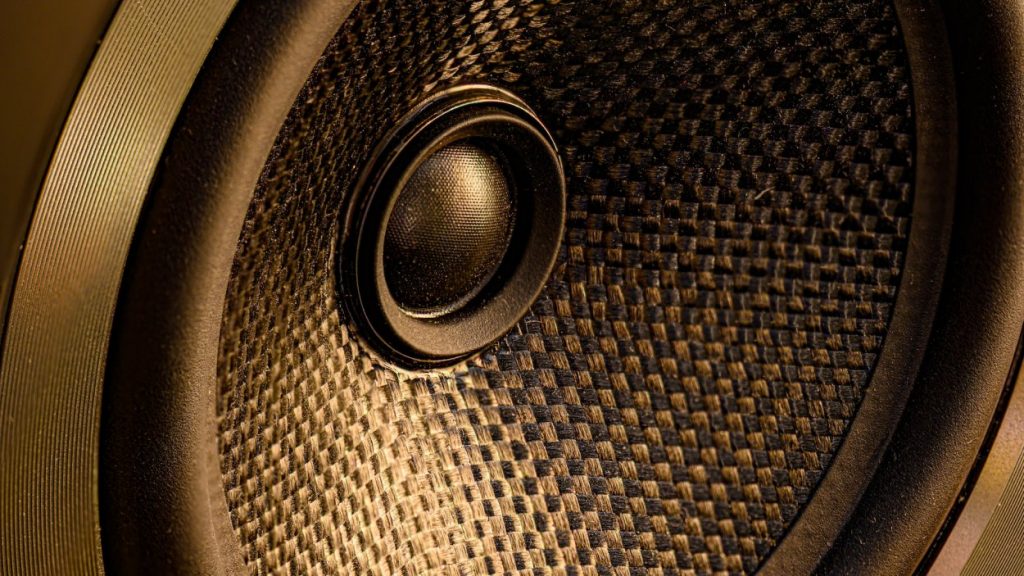Subscribe to Updates
Get the latest creative news from FooBar about art, design and business.
Speakers – Tutorials, How-To, FAQs
-
 Victor Marquez
Victor Marquez

There is a wide variety of speakers available in the market.
They all differ in size, design, cost, and quality.
So, if you don’t have the correct information, it’s easy to get confused.
We don’t want you to compromise on your audio experience. Therefore, we’ve written this guide to help you choose the best one so you get good use out of the speakers.
Quick Summary
In this post, we will go over:
- Types of speakers
- How to choose the best speakers
…and more.
So, without further ado, let’s get started.
What Are Different Types of Speakers?
Before we dive into how to choose the best speaker, it’s important that you know the different types.
Although the variety of speakers may intimidate you, narrowing the speaker type will help with the overall process of choosing the best one.
The main speaker types are:
- Woofer
- Subwoofer
- Tweeter
- Midrange speakers
- Full-range driver speakers
- Smart speakers
- Computer external speakers
Woofer
Woofers provide low-range audible frequencies, mostly 40Hz to 1kHz. This is why they’re also known as bass speakers.
For this reason, if you want something strong on the bass to listen to music or other content, this is the speaker for you.
Typically, any home theater system will have at least one woofer speaker as a part of the setup.
Subwoofer
Similar to woofers, subwoofer speakers also output lower frequencies, usually between 20Hz to 200Hz.
So, how are they different from woofer speakers?
The woofer speakers will only let you hear the bass, whereas subwoofers let you feel it.
They typically have deeper bass. Therefore, we recommend it for home theater systems. But, you can also place them in any setup where you require bass, including your car.
Midrange Speakers
They provide a much richer sound profile as compared to woofers and subwoofers. They also don’t pack a ton of bass.
Therefore, they’re the best pick for listening to musical instruments, watching movies, or playing video games.
Tweeter
Tweeters are mandatory purchases for any type of professional audio setup.
This is because it makes use of different technologies to produce the sound of high frequency. This is something you need if you want the audio to be rich and enjoyable.
But, if you want a small-scale setup, you can skip these.
Full-Range Driver Speakers
Full-range speakers aim to provide an all-in-one solution to different speaker setups. They work from 60 Hz and go above 20Hz.
They’re a great choice if you want something affordable and compact.
However, they will not make sense in a professional setup. This is because they can’t produce the lows of a woofer and the highs of a tweeter.
Smart Speakers
We’re sure you’ve already heard about smart speakers.
They include the usual audio technology for sound output. But, what sets them apart is their features, such as telling the time, and weather, making lists, and more.
They mostly use Amazon Alexa, Google Assistant, or Apple’s Siri voice assistant.
They’re also compact in size and work similarly to the full range of driver speakers.
They work great as a virtual assistant. But, if you want rich audio, we suggest you try something else.
Computer External Speakers
You can connect these speakers to your computer or laptop.
Sound-wise, they work similarly to full-range driver speakers, but the sound output is average. But you can improve the sound quality through a multi-speaker setup.
We suggest these speakers if you want to improve your computer audio for a better experience with music and gaming.
You’ll also find these speakers in a wide price range so you can choose according to your budget.
How to Choose The Best Speakers?

Now that you know the different types of speakers, how do you choose the best one?
The first thing you need to do is determine what you’ll be using them for.
It wouldn’t make sense to have a huge set of professional speakers to only listen to music. Then, you can move on to the other factors.
Establish a Budget
This is where you decide how much you’re willing to spend on the speakers.
This decision goes back to what you need the speakers for. For example, if you want to upgrade your home theater, you’ll need a much bigger budget.
But, if you only want a new gaming speaker to improve the gameplay, you can probably go with something more cost-effective.
Also remember, an expensive speaker does not mean it’s a good one. Therefore, it’s also important to do your research before you buy it.
Measure Your Room
This is another crucial step because the amount of space you have may restrict or require you to a certain type of speaker.
Usually, speakers require a certain amount of free space to work the best. This is because the soundwaves get affected by nearby objects.
Where will you find this information?
Everything you need to know is usually mentioned in the manufacturer’s instructions.
For example, some speakers state they work best at 2 meters from the wall, while others need to be fitted inside. On the other hand, smaller speakers work great for your bedroom but may sound weak when placed in the living area.
Match The Right Components
For the best audio quality, you need to make sure your speakers match the amplifier or receiver to deliver the right power.
Manufacturers specify a range of amplifier power to correctly power the speakers. For example, a speaker may work best at 30 to 100 watts.
If you’re planning on a sound surround setup, we suggest you stick to the same brand of speakers for the best performance.
You can also mix and match, but that will require extra tuning.
Conclusion
While buying new speakers, you don’t need to rush.
There is no harm in starting small until you’re sure. Then you can dive into setting up a proper sound system.
It’s also a good idea to read speaker reviews before you go on purchasing one. This will help you rule out certain products that don’t match your needs and guide you to what you should be looking for.

